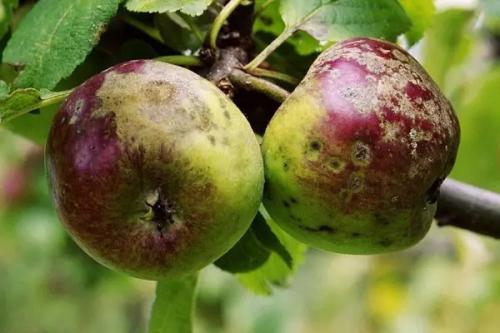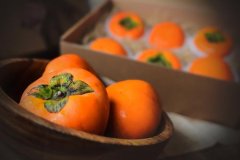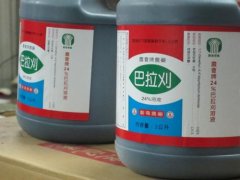How does apple black star disease scab disease do? New inventions of specific drugs for apple scab
Do you like apples? Then you know that apples are prone to diseases and insect pests, and some farmers will spread pesticides to prevent them, so that apples are easy to have pesticide residues. In particular, apple scab, also known as apple scab, which is caused by fungi, is particularly difficult to deal with, if spread is likely to cause apple production loss of up to 80%.

To this end, experts and scholars from the University of Illinois, Rutgers University and Purdue University jointly implement the Apple Cooperative breeding Program. Several cooperative experts and scholars published a new study in the Journal of Food quality. Aiming at scab-resistant apple varieties, including GoldRush, WineCrisp, CrimsonCrisp and Pixie Crunch, the purpose of the research is whether the quality can be maintained after standard postharvest storage. At the same time, the disease resistance of these four new apple varieties was compared with that of Golden Crown Apple, which was susceptible to scab disease.
Slow down the ripening rate of apples and have market competitiveness
The researchers treated scab-resistant apples with 1-methylcyclopropene (1-MCP) gas, a step known as atmosphere control, which controls the ripening rate of fruits and vegetables. This study is used to inhibit ethylene production and slow the ripening rate of fruits during storage. Experiments show that 1-MCP can effectively slow down the ripening of apples and keep the fruits fresh after 70 and 140 days of storage, which helps to maintain nutrition and quality during storage.
The edible quality of the new scab-resistant apple is similar to or even better than that of Golden Crown apple in terms of meat hardness, sugar content and acidity, no matter after fresh harvest or storage. GoldRush and CrimsonCrisp, even after 140d storage, still had significant and higher antioxidant capacity, and CrimsonCrisp had the best effect on 1-MCP gas treatment among all scab resistant varieties. In terms of nutrition, health benefits, appearance and taste, scab-resistant varieties are similar to Golden Crown in quality and standard performance, and are highly competitive.
It is more beneficial to reduce the use of pesticides and promote organic.
Another benefit is that in order to combat apple scab and other diseases, farmers need to use pesticides frequently during the growing season to solve the disease, while scab-resistant varieties reduce pesticide use and are more attractive to organic farmers. Since 1944, after horticulturists at the University of Illinois discovered scab resistance genes, several apple varieties with scab resistance have been developed, but the initial scab resistance varieties did not perform well, but they have brought a glimmer of hope for the future apple market.
The breeding program has confirmed that several new varieties are more nutritious than the old ones, but more research is needed on whether the flavor can be maintained with the preservation time. At present, disease-resistant varieties of apples can only be found in local agricultural vendors, such as local markets or orchards, and as new varieties are produced in major apple-producing states in the United States, consumers will be able to find them in large stores.
- Prev

Persimmon planting technique: what is the special growth characteristic of sweet persimmon seedlings?
Do you know what are the special characteristics of sweet persimmon? If you want to know, let's take a look. First, the selectivity of rootstocks is relatively strict: according to the rootstocks commonly used in Taiwan, Jiro has better affinity, rich is worse, and Yusuo series is even worse, about
- Next

Paraquat: can I mow the lawn with paraquat? How serious is paraquat poisoning?
Do you know paraquat pesticides? The harm of this pesticide is very great, if people eat it by mistake, it will cause a lot of harm. The herbicide paraquat is cheap and easy to use, and can be widely used in citrus orchards, tea orchards, sugarcane orchards and other weeds, and is also used as a defoliant for red beans before harvest.
Related
- Fuxing push coffee new agricultural production and marketing class: lack of small-scale processing plants
- Jujube rice field leisure farm deep ploughing Yilan for five years to create a space for organic food and play
- Nongyu Farm-A trial of organic papaya for brave women with advanced technology
- Four points for attention in the prevention and control of diseases and insect pests of edible fungi
- How to add nutrient solution to Edible Fungi
- Is there any good way to control edible fungus mites?
- Open Inoculation Technology of Edible Fungi
- Is there any clever way to use fertilizer for edible fungus in winter?
- What agents are used to kill the pathogens of edible fungi in the mushroom shed?
- Rapid drying of Edible Fungi

